Athens: the white city
I arrived on October, 2015, almost unaware that I was about to spend an entire year in a place I hardly remembered from a past trip I had done when I was smaller. But it didn't matter, of course, because the best of a travelling experience always starts with the infinite amount of opportunities of contemplating and comparing what you hadn't imagined before.
Truth is we can see images and descriptions of practically any place, any time, but also that we can even get to those places in less than two days and face facts we couldn't see through the screen, the words we read, or the voice who told us about it. It's a well known life fact in our century, everybody is aware, so, why would I write more words and post more images for you to read and see if I know you won't understand what it is really about? Well, besides having renewed information is always a plus, I hope you take the chance of reading this and encourage yourself to live a life in which you share and recieve, not missing a chance of accepting new dares, so hopefully you fly and come over here!
First impressions.
Light and color
Athens is a white city, built down on the hillside of a series of mountains. This color not only keeps heat away that sneaks into the interiors 8 months a year, but also gives it a special spark. I'm from Madrid, which I have always considered a yellow city, due to its old and darker buildings which make the light fade to a softer tone. However, Athens reflects sun light with glory, and its people take advantage of it using big wide windows and terraces on their buildings.
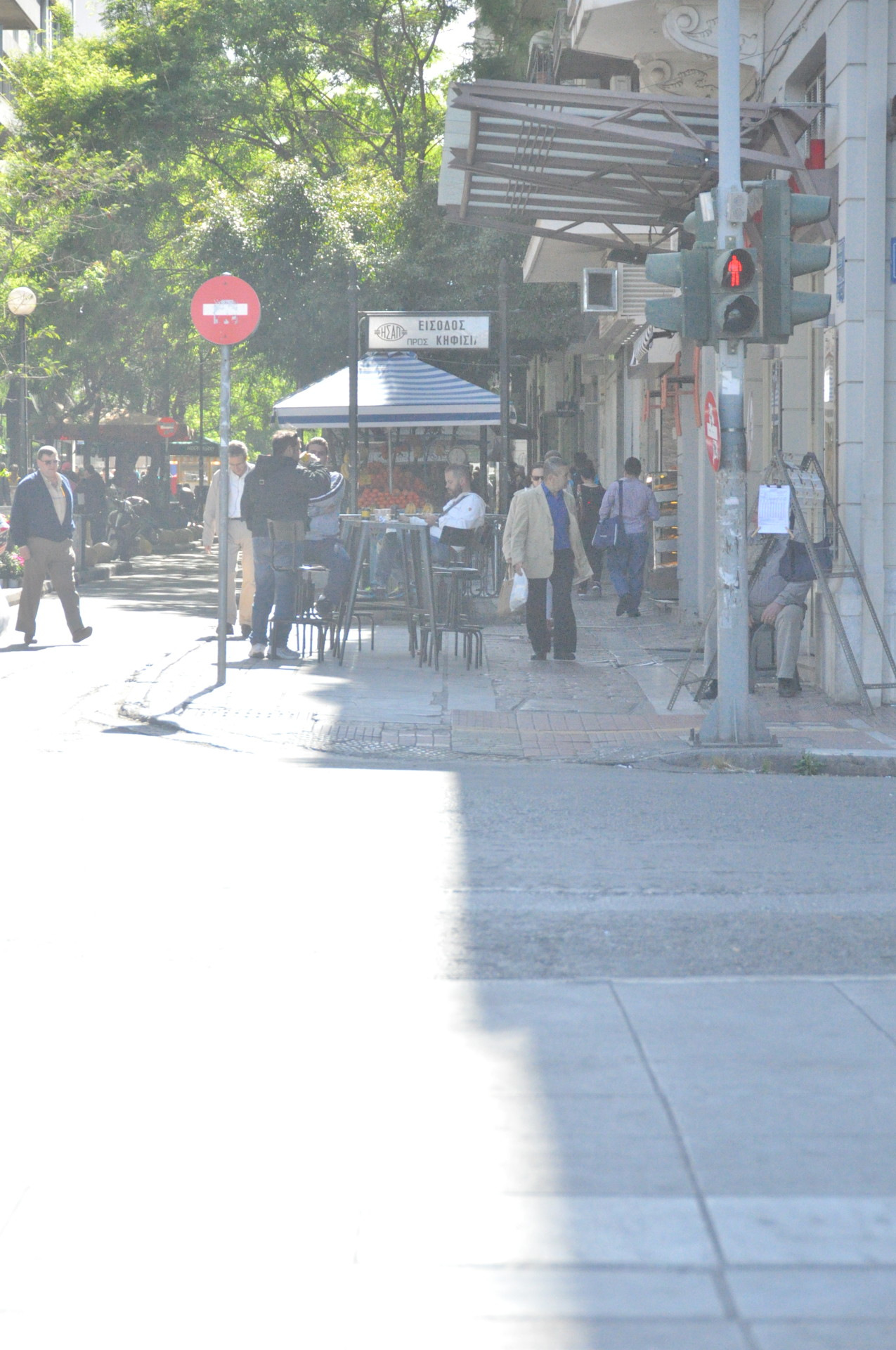
Structure
Buildings are never too tall, a detail that brings the feeling of having exited Europe as we know it, summed up to greek life style and some elements of its' streets, comparing Athens with other great capitals of European countries (Berlin, London, Paris,... ) filled with emblematic monuments and skycrapers would make it seem as a village. Have you ever been to an old town in your country? That's how I felt it: a lattice of simple streets, some impregnated by the sea's smell, other on the hillside, which surround such as an ancient city centre. Here is where the heart of touristic sites is placed, due to its' even bigger historical importance.
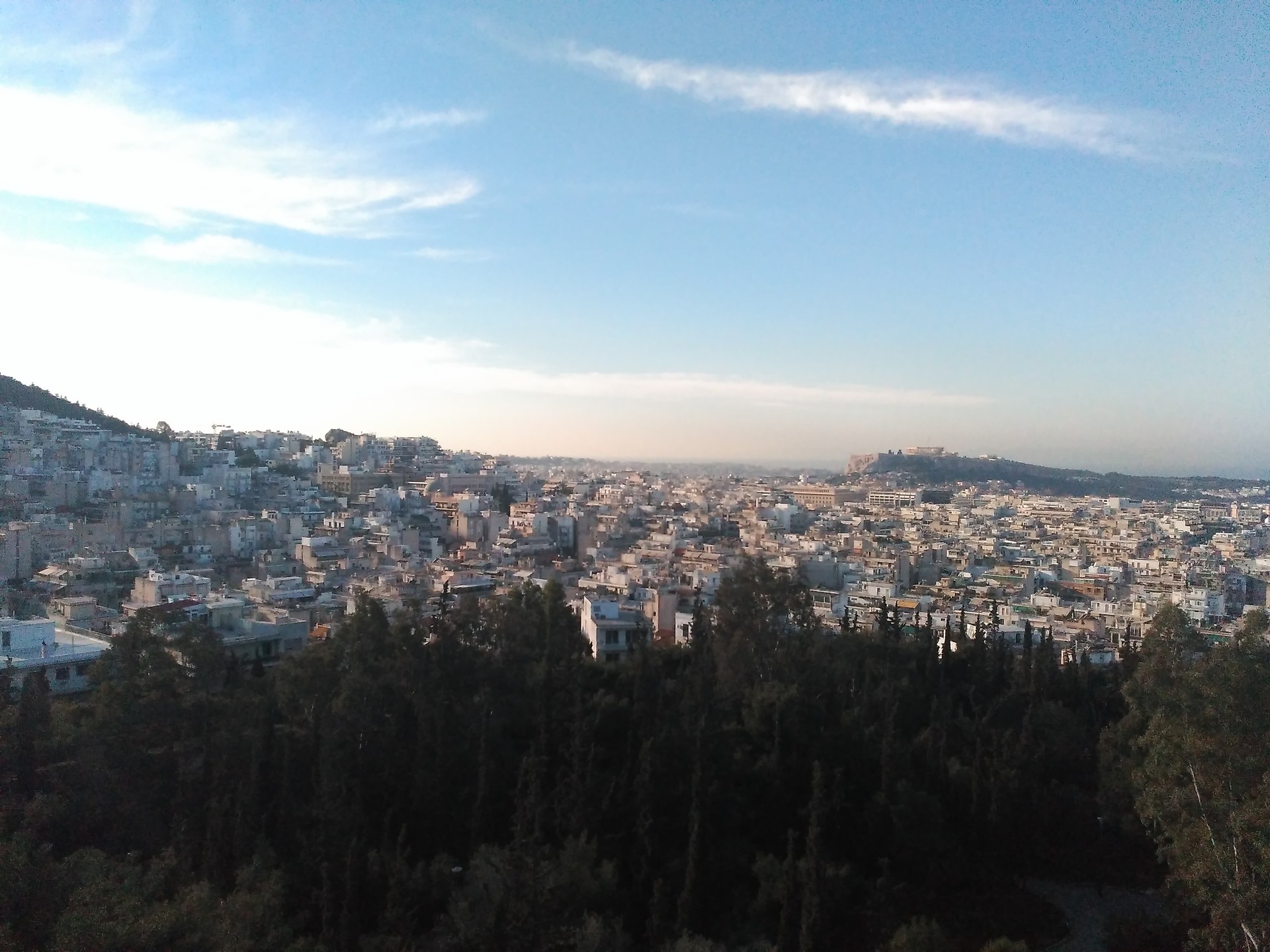
Culture
Athens is certainly holding a long history of its past, but not only in its ruins and ancient monuments. Beside them, you must bear in mind its most recent past under theOtoman Empire term, which has affected the countrie's culture, driving it closer to the arabic life style in some ways and, even more, by it's neighbour Turkey. We cannot ignore it's geographical location on the South East side of Europe. This makes the capital of Greece a perfect mix of european, turkish, arabic, balcan cultures, and even if it sounds strange, also a bit latinamerican. This characteristics can be seen in the streets and in its' people, which I will come to talk about later on.
Streets
Something that really made an impact on me since the first day, speaking as how lost I felt then, were its narrow and barely illuminated streets. This reality is, sadly, applicable to most of the neighbourhoods in town, given the political and economical situation that the country is suffering, it seems that urban maintenance has stuck. However, it wasn't difficult to find a big avenue around full of lights and people, which soothed my fear of getting lost. There are avenues in every area, hosting mostly shops and bussineses, to where the small residential streets run into.
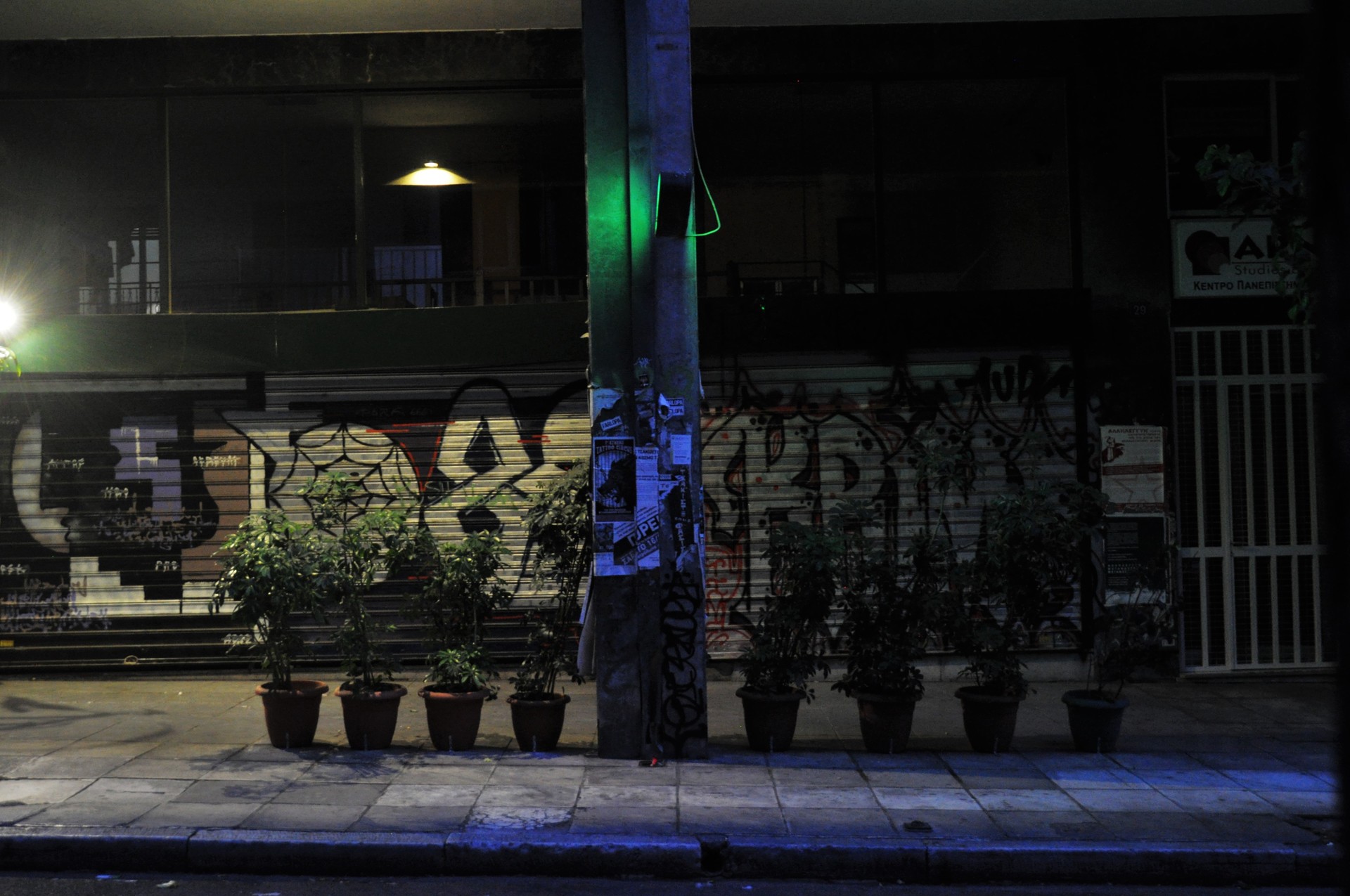
Seaside
It really doesn't seem the sea is near, but it's a hair's breadth away, and even though it's beaches are not ideal for swimming, public transport leaves you right there, in front of a beautiful maritime landscape picture. It almost feels like, after 20 minutes in the train, you have travelled to a completely different place. The tram does a tour almost all through the shore and, as I said, it doesn't take more than half an hour to get there.
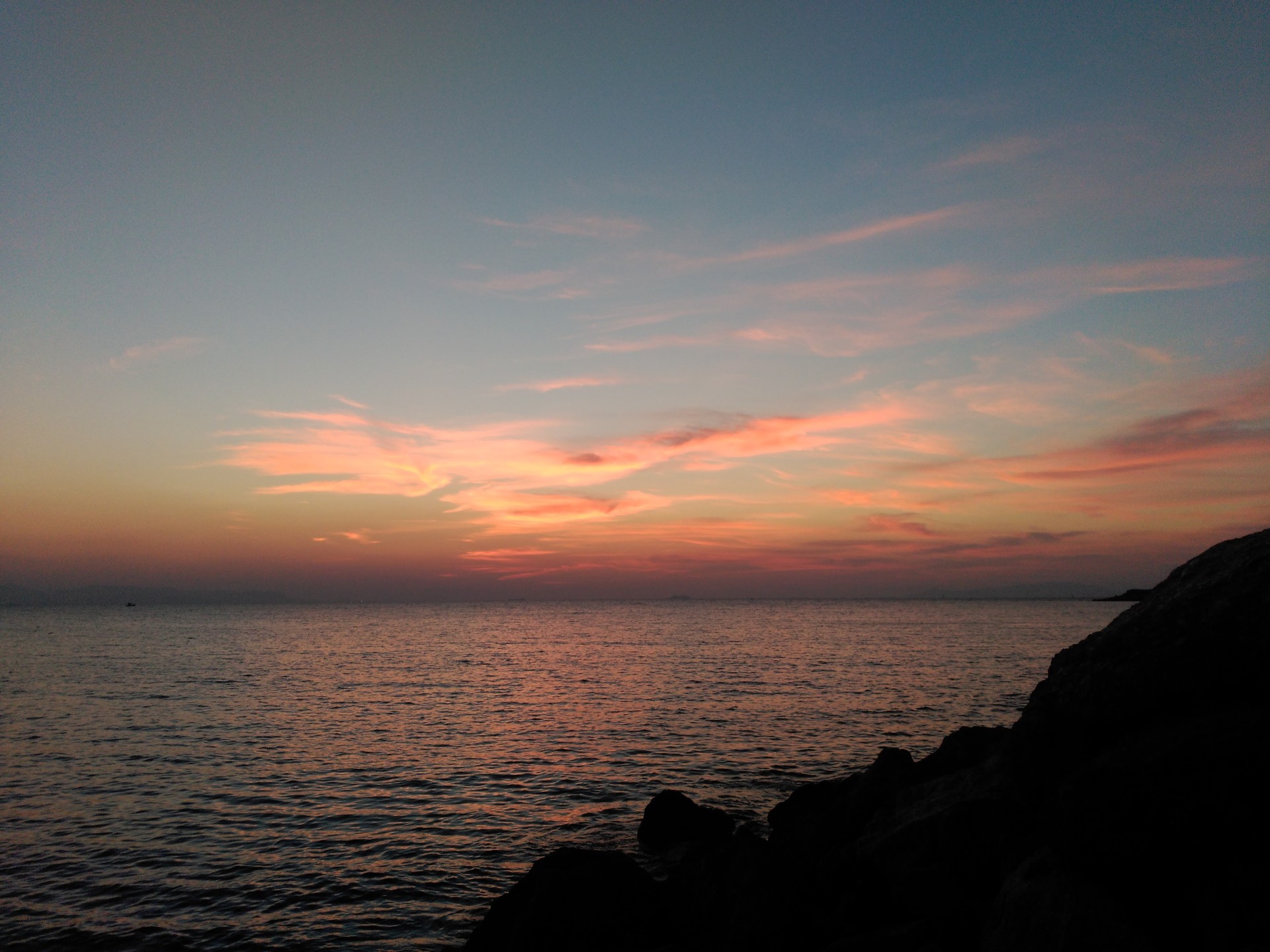
Transport means
Now that I mentioned transport, since the first moment I was pleased to see that there is no difficulty in moving all through the city centre, or reaching the suburbs and the seaside. There are four principal transport means: metro and train, suburban railway, tram, and bus (ok, and taxis, as in everywhere else, in a yellow New York style! ). For as student as I am, facilities to move around the centre and suburbs was one less problem to think about.
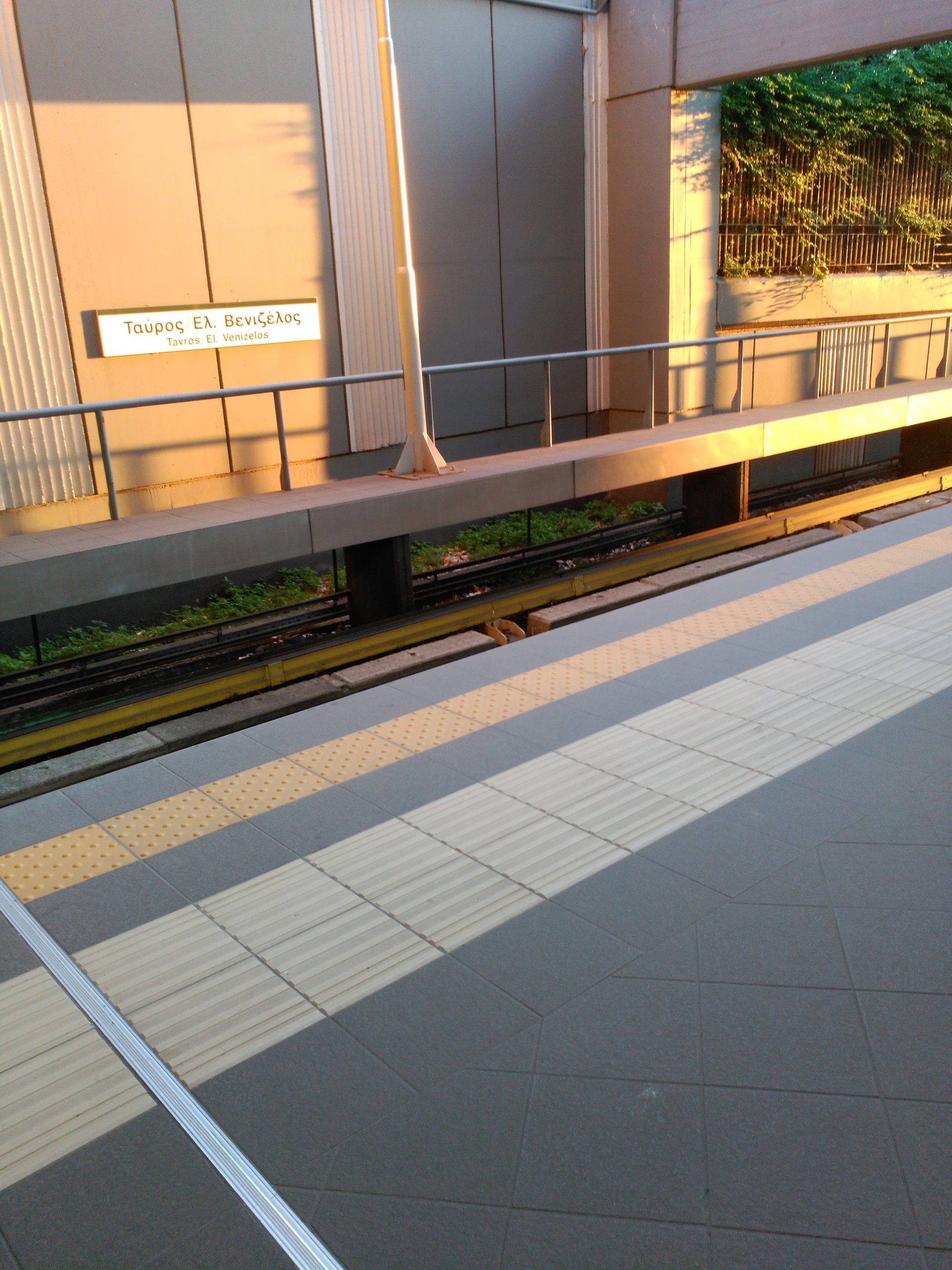
Language
And I kept subtracting problems when I found out, after a couple of weeks not having much luck talking to people, that english, and even spanish, are languages which most of the people speak easily anywhere (mostly in shops of the centre and at information points, obviously). Bearing in mind that modern greek is one of the most difficult languages to learn nowadays, until I got to memorize the basic words for a daily routine english and spanish helped me to get right through every need I had. It is also common that people speak german and french, which is taught in many schools, but the level is not as high. It aslo affects the fact that people is always willing to welcome foreigners almost from anywhere, share the wealth of their history and culture, and learn from the ones who come to see what we can find. I guess it makes sense, since Greece's basic economical support is tourism, and if they acted bitterly and were closed, nobody would come back! And I wouldn't still be here, sitting at a cafe writing my memories to you.
Well, that is the best summary I can make of the memories I keep of a year and a half living here. Are you ready to discover the secrets of Athens?
Content available in other languages
- Español: Atenas: la ciudad blanca
Want to have your own Erasmus blog?
If you are experiencing living abroad, you're an avid traveller or want to promote the city where you live... create your own blog and share your adventures!
I want to create my Erasmus blog! →















Comments (0 comments)